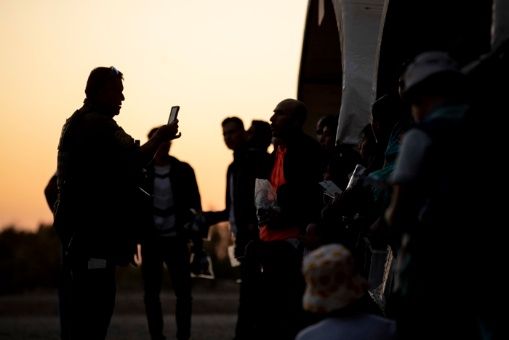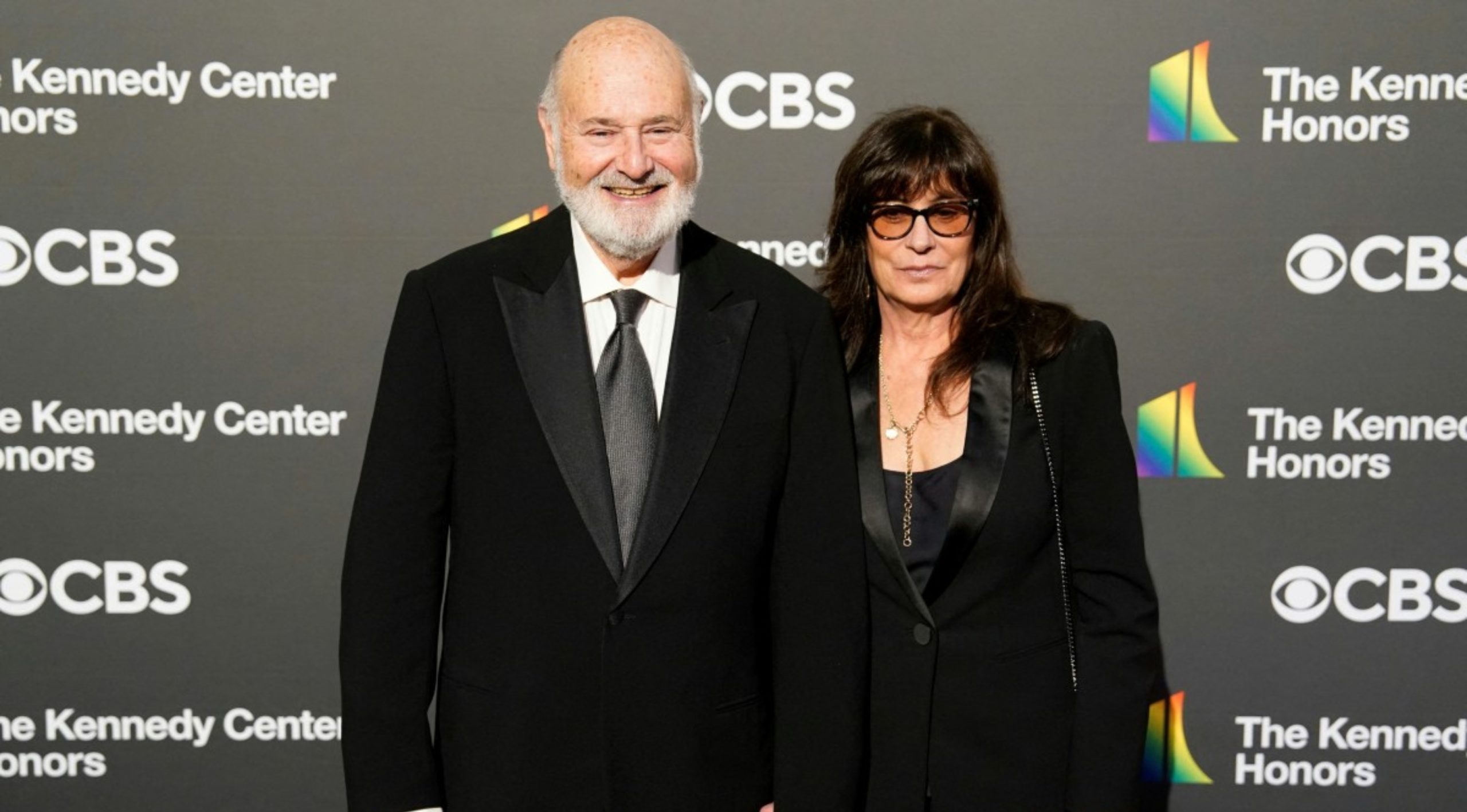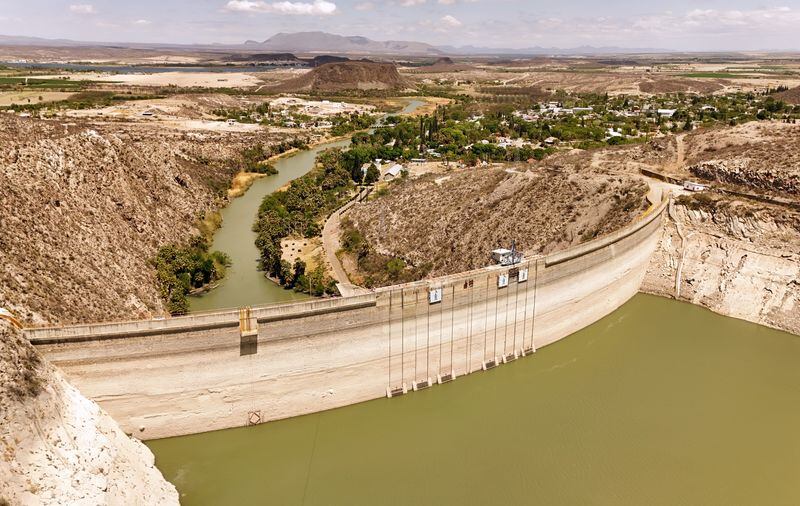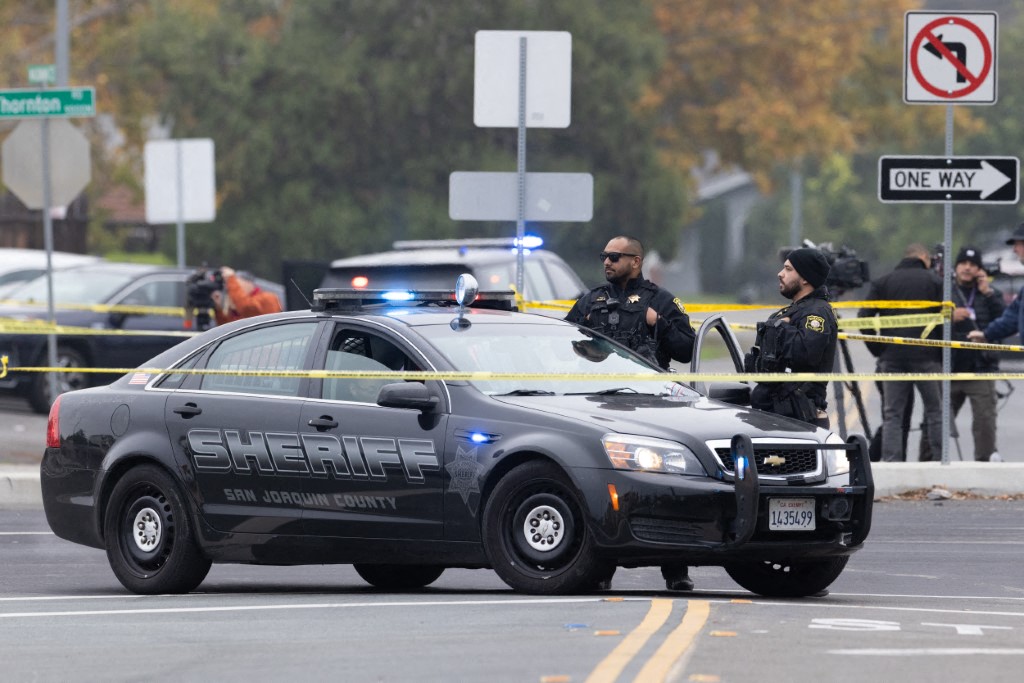International
No increase in border crossings after end of Title 42, say U.S. and Mexico

May 12 |
detected a substantial increase in migrant crossings across the common border in the first hours since the lifting of Title 42, the hot deportation policy approved by then-President Donald Trump in 2020.
On the Mexican side, Foreign Affairs Secretary Marcelo Ebrard. stated that the flow of migrants has dropped after a record low due to the end of the Title 42 ban, which expired at midnight Thursday. He added that there have been no confrontations or violence on the border with the United States in recent hours.
According to Ebrad, “the flow is going down today, at least up to this hour we have not had confrontations, situations of violence at the border,” he pointed out during President Andrés Manuel López Obrador’s regular press conference.
From the United States, the Undersecretary of Homeland Security, Blas Núñez-Neto, admitted however in a press conference that it is still too early to offer official figures and assured that the authorities remain attentive to any event occurring on the border.
“We can affirm that we have not seen any substantial increase in migration this morning,” explained the official, who nevertheless said that detention figures in the area remain “high.”
At midnight last night, the U.S. stopped applying Title 42, which allowed for the hot removal of undocumented migrants without the possibility of requesting asylum, after the end of the health emergency due to Covid-19, but instituted other restrictions at the border and began deporting through another regulation known as Title 8.
Nunez-Neto warned that from now on all those who cross the border without regular immigration status “will not be eligible for asylum,” will be removed from the country quickly and may be banned from entering the United States for five years.
However, Mexico announced just this morning that it will not allow more than 1,000 non-Mexican migrants a day to return to its territory.
Ebrard reiterated that “as it was done” even when Title 42 was in effect, which only “received one thousand migrants per day”, this figure will continue. He even assured that the highest number received in a month was 16,000 migrants.
“Mexico has let them know that in no case could it receive more than a thousand people a day, we do not have the capacity nor would we accept it. That is in effect since Title 42.”
At least 24,000 border patrol agents are guarding the area, in addition to the 1,500 soldiers that the Pentagon will be deploying in a staggered manner over the next few days.
International
Police investigate deaths of Rob Reiner and wife as apparent homicide

The Los Angeles Police Department (LAPD) is investigating the deaths of Hollywood actor and filmmaker Rob Reinerand his wife as an “apparent homicide,” amid a wave of tributes to the director of classics such as When Harry Met Sally.
According to U.S. media reports on Sunday, Rob Reiner and Michele Singer Reiner were found dead at their Los Angeles mansion with what appeared to be stab wounds.
Several political figures shared messages of condolence following the reported deaths of the director of A Few Good Menand his wife.
While the LAPD did not officially confirm the identities of the victims, it stated that homicide detectives were dispatched to the Reiner residence.
“At this time, no additional details are available and the investigation into an apparent homicide is ongoing,” the Los Angeles Police Department said in a statement posted on social media.
LAPD Deputy Chief Alan Hamilton told reporters that no arrests have been made and that no individuals are currently being questioned as suspects.
“I’m not going to confirm whether anyone is being questioned at this moment or not. We are going to try to speak with as many family members as we can,” Hamilton said.
CNN reported that a family spokesperson confirmed the deaths of Reiner and his wife.
California Governor Gavin Newsom, former U.S. President Barack Obama, and former Vice President Kamala Harrisissued statements expressing their condolences.
International
U.S. and Mexico Reach Deal to Address Water Deficit Under 1944 Treaty

The United States and Mexico have reached an agreement to comply with current water obligations affecting U.S. farmers and ranchers and for Mexico to cover its water deficit to Texas under the 1944 Water Treaty, the U.S. Department of Agriculture said in a statement.
The department уточified that the agreement applies to both the current cycle and the water deficit from the previous cycle.
On Monday, U.S. President Donald Trump accused Mexico of failing to comply with the water-sharing treaty between the two countries, which requires the United States to deliver 1.85 billion cubic meters of water from the Colorado River, while Mexico must supply 432 million cubic meters from the Rio Grande.
Mexico is behind on its commitments. According to Washington, the country has accumulated a deficit of more than one billion cubic meters of water over the past five years.
“This violation is severely harming our beautiful crops and our livestock in Texas,” Trump wrote on Monday.
The Department of Agriculture said on Friday that Mexico had agreed to supply 250 million cubic meters of water starting next week and to work toward closing the shortfall.
Agriculture Secretary Brooke Rollins, quoted in the statement, said Mexico delivered more water in a single year than it had over the previous four years combined.
Trump has said that if Mexico continues to fall short of its obligations, the United States reserves the right to impose 5% tariffs on imported Mexican products.
Mexico’s Deputy Foreign Minister for North America, Roberto Velasco, said that a severe drought in 2022 and 2023prevented the country from meeting its commitments.
International
Several people shot in attack on Brown University campus

Several people were shot on Saturday in an attack on the campus of Brown University, in the northeastern United States, local police reported.
“Shelter in place and avoid the area until further notice,” the Providence Police Department urged in a post on X. Brown University is located in Providence, the capital of the state of Rhode Island.
U.S. President Donald Trump said on his social media platform Truth Social that he had been briefed on the situation and that the FBI was on the scene.
At 5:52 p.m. local time (11:52 p.m. GMT), Brown University said the situation was still “ongoing” and instructed students to remain sheltered until further notice.
After initially stating that the suspect had been taken into custody, Trump later posted a second message clarifying that local police had walked back that information. “The suspect has NOT been apprehended,” the U.S. president said.
-

 International4 days ago
International4 days agoWashington declares State of Emergency as atmospheric river brings severe flooding
-

 International4 days ago
International4 days agoU.S. to require five-year social media history from tourists under Visa Waiver Program
-

 International3 days ago
International3 days agoCuba battles out-of-control dengue and chikungunya epidemic as death toll rises to 44
-

 Central America3 days ago
Central America3 days agoHonduras election crisis deepens as CNE president denounces intimidation attempts
-

 Central America4 days ago
Central America4 days agoOAS and EU urge honduran political actors to respect vote results and avoid unrest
-

 International3 days ago
International3 days agoColombia says it would not reject Maduro asylum request as regional tensions escalate
-

 International2 days ago
International2 days agoSeveral people shot in attack on Brown University campus
-

 International3 days ago
International3 days agoEcuador on track for record violence as homicides hit highest level in Latin America again
-

 International4 days ago
International4 days agoSix ecuadorian soldiers jailed pending trial for alleged extrajudicial execution
-

 International2 days ago
International2 days agoU.S. and Mexico Reach Deal to Address Water Deficit Under 1944 Treaty
-

 Central America12 hours ago
Central America12 hours agoPanama seizes over three tons of drugs hidden in Caribbean port container
-

 Central America4 minutes ago
Central America4 minutes agoOAS urges swift recount in Honduras as election results remain uncertain
-

 International1 minute ago
International1 minute agoPolice investigate deaths of Rob Reiner and wife as apparent homicide


























